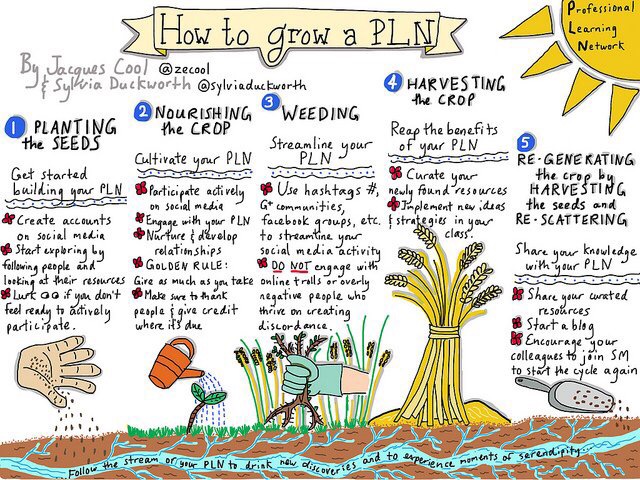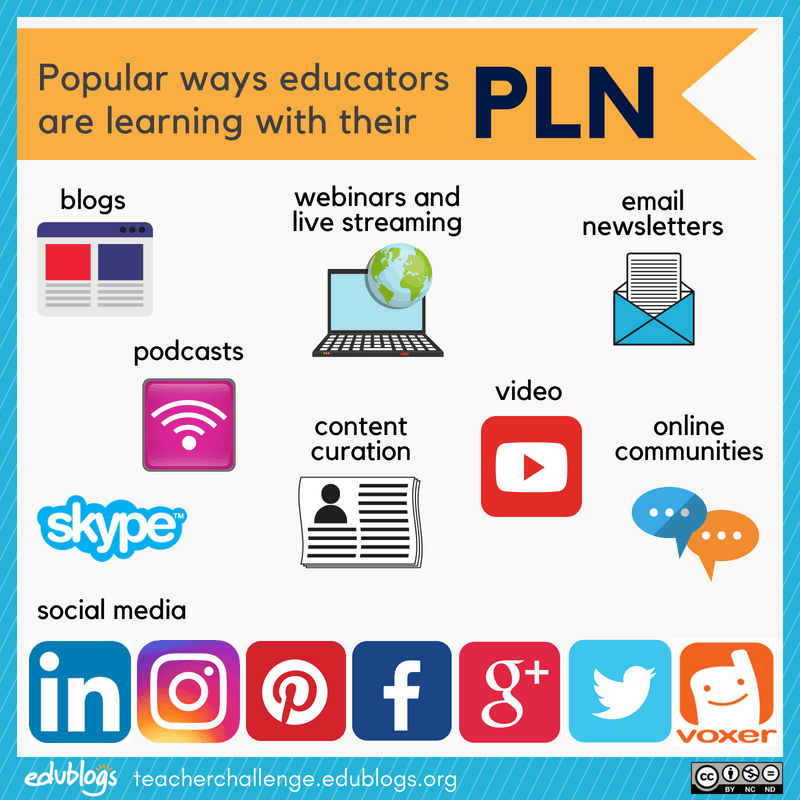
Throughout this course, I have learnt many things about my digital identity and how to curate, grow, and engage my PLN. The course readings have provided me with a wealth of information and resources that will support my personal and professional development in the future. I am now more comfortable with using my PLN to support my professional development and continue to grow my PLN now that I am more aware of inclusivity, professional versus personal identity, and the possible (employment-costing) risks associated with PLNs. The key to continuing to build my professional network will be to continue to widen and curate my PLN with individuals, social media, and professional sources that are particular to my interests, skills, and surrounding PLN.

Can your PLN be used to help professional development post-course?
Yes, I do believe so. Looking at the media attached above, incorporating things such as “sharing your curated sources,” “encouraging colleagues to join,” and “using hashtags and communities” to engage your PLN are examples of things I could use my PLN to help my professional development post-course. There is great potential in using my PLN for my professional development; however, something I have also learnt in this course is the difficulty and attention to detail it requires. It is not as easy as just entering in and engaging with communities you relate to or find interest in. It requires great media literacy and an understanding of what might threaten or limit your professional development within these online spaces. For example, curating and engaging with fake or problematic news might discredit your professional development. As the image suggests, it is important to prioritize things like not engaging with trolls and negativity if you want to use your PLN to foster strong, educative, and inclusive professional development.
Can your PLN be relied on to open professional opportunities?
PLN’s are a great tool in presenting up professional opportunities. For example, something I think about is LinkedIn. The entire purpose of LinkedIn is that it is a platform in which you can display your skillset, experiences, and PLN, and you can thus find which professional opportunities best suit you. In this way, PLN’s can be used as a professional portfolio in which employers can easily access and thus decide to open up professional opportunities. Another example I think of is when YouTube creators are looking to fill positions such as ‘video editors’, they look at the editors previous work on other channels. Once I graduate, I know that I will depend on the expression of my PLN to open up professional opportunities for me, whether it be through platforms like LinkedIn or not.



